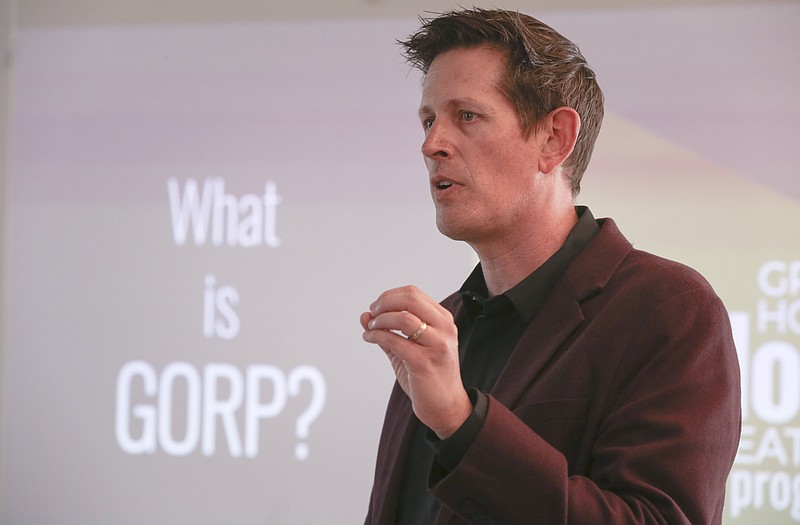The University of Arkansas, Fayetteville's Greenhouse Outdoor Recreation Program will expand statewide, courtesy of a grant from the U.S. Department of Commerce's Economic Development Administration.
GORP, which has its largest group of startups to date with this fall's cohort, supports startups with workshop training, team mentoring and dedicated product/service development to help them scale globally, according to Brandon Howard, communications and social media specialist in the university's Office of Entrepreneurship and Innovation. It also provides as much as $15,000 in "non-dilutive seed funding" per company, which doesn't require the owner to give up equity.
With a Build to Scale grant from the Economic Development Agency, announced Thursday, the GORP expansion will concentrate on rural and underserved areas by leveraging their outdoor assets to spur economic development, Howard said. Queen Wilhelmina State Park (Mena), Petit Jean State Park (Morrilton), Pinnacle Mountain State Park (Roland) and the Delta Heritage Trail State Park (West Helena) -- all recently designated as economic "opportunity zones" -- will be targets of the GORP expansion.
These four regions were identified in consultation with the Natural State Advisory Council, convened by Bryan Sanders, husband of Arkansas Gov. Sarah Huckabee Sanders, who serves on the council that has assessed which regions "have the right combination of local leadership and outdoor recreation assets to support an outdoor recreation economy of small and scalable businesses," said Sarah Goforth, executive director of the Office of Entrepreneurship and Innovation.
"We will launch the regional programs" in the first quarter of 2024 and "hold them in a sequenced manner, in partnership with higher education institutions and nonprofits who operate locally."
The Economic Development Agency announced 60 grants Thursday totaling $53 million for programs that support technology entrepreneurs, catalyze innovation and fuel economic growth, according to the EDA. This is the 10th cohort for this program.
The federal share of the grant for GORP is $1.2 million, with a $1.3 million local match, according to the Economic Development Agency. In addition to bringing expert business development workshops, industry events and experienced mentors to entrepreneurs across the state, the GORP statewide expansion will collaborate with partners from the UA-Fayetteville School of Law to include entrepreneurial law sessions to assist founders with operating agreements and other business formation documents.
When GORP was launched in Northwest Arkansas, "we were building on a strong programmatic foundation" the Office of Entrepreneurship and Innovation has cultivated over several years, with a mentor network, internship program, ties into curriculum and other strengths, but "we don't have those assets in other communities, so the new programs are more foundational in nature," Goforth said.
"Entrepreneurs coming into those programs will receive the most important support mechanisms: access to mentors, specific consulting that supports the early stage of venture-building and training as a group that allows them to learn from each other."
The Economic Development Agency grants aim to accelerate technology entrepreneurship by increasing inclusive access to entrepreneurial support and startup capital, according to the EDA. Investments will be in innovation industries, such as agriculture technology, bioscience, advanced manufacturing and health technology.
Since its founding in spring 2022, 17 startups have launched and expanded their businesses through GORP, according to Howard. Additionally, the program has supported nearly 200-300 entrepreneurs through a la carte services such as workshops, networking events, access to co-working space and consulting.
"GORP has had incredible success," and as more businesses grow from GORP experience, the need for support at later stages – "we would call this the acceleration stage, as opposed to the incubation stage – grows as well," Goforth said. "Business acceleration is important for the state's economy because it is the stage at which jobs are created, private investment flows into the state and communities begin to see a growing tax base and in-flow of tourism dollars. We will be working to build and fund an accelerator program over the next year."

